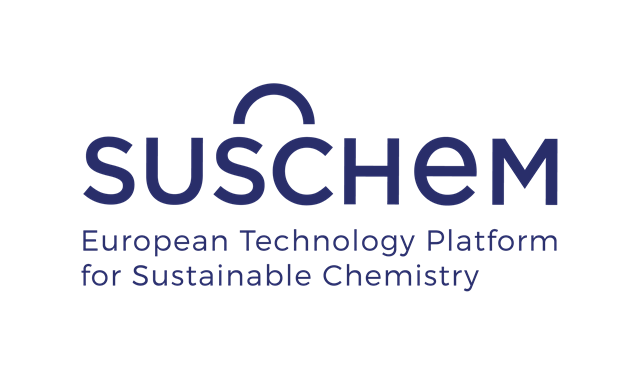 Today (26 June) the second call for proposals for Bio-Based Industries Joint Undertaking (BBI JU) were announced at their Info Day in Brussels and the results of the first call were confirmed with the signing of the first 10 grant agreements.
Today (26 June) the second call for proposals for Bio-Based Industries Joint Undertaking (BBI JU) were announced at their Info Day in Brussels and the results of the first call were confirmed with the signing of the first 10 grant agreements. Europe’s biobased economy received a major boost with the announcement of the new €200 million+ call for proposals on June 26 at the Bio-Based Industries Joint Undertaking (BBI JU) in Brussels. The latest call for proposals follows the July 2014 launch of the BBI JU, a €3.7 billion public-private partnership aimed at supporting the development of Europe’s emerging bioeconomy.
The 2015 call for proposals were formally announced at the Info Day - an information and awareness event gathering together research and innovation programme managers and experts from across Europe.
The 2015 call is aimed at attracting project proposals that can fill the technological gaps within specific value chains in the bioeconomy, or actions addressing the whole value chain from feedstock sourcing to the market applications. Demonstration actions should include building a demo-scale production facility in Europe, while flagship actions should support the first application in the market of a proven innovation that has not yet deployed. Details of the second call can be found here.
The packed Info Day meeting (above) at the European Commission’s Borschette Centre in Brussels was opened by BBI JU’s Interim Executive Director, Barend Verachtert. He hailed the new call for proposals as a landmark for Europe in its progress towards a fully sustainable bioeconomy. “Today is an important day for the BBI JU,” said Verachtert. “It shows that we are on the way to building a strong bioeconomy in Europe.”
Bioeconomy, circular economy
The new call comes just two weeks after G7 leaders meeting in Germany agreed to end all fossil fuel use by the end of the century and the day after a major conference meeting in Brussels highlighted the role of sustainable chemistry and biotechnology in achieving the aims of the circular economy.
Verachtert said that the new call reflects Europe’s clear commitment to develop cleaner ways to exploit its natural resources. “The bio-based industrial sector will significantly reduce Europe’s dependency on fossil-based products, help the European Union meet climate change targets, and lead to greener and more environmentally-friendly growth,” he said.
Moreover, Verachtert pointed out the social and economic effects of the BBI JU proposals, in particular their focus on small and medium-sized enterprises (SMEs). “These proposals can go a long way to help SMEs produce the innovative bio-based products needed to lift Europe’s sustainable economy,” he said. “With the bioeconomy now at the heart of the EU’s investment agenda, the proposals underline a joint will to build new value chains between sectors like agro-food, chemicals and energy,” he added.
Following presentations on the BBI and the European biobased industries and Horizon 2020 and a full briefing on all aspects of the 2nd call in the morning, the afternoon of the Info Day was devoted to networking and the initial steps towards consortium building and proposal preparation.
New BBI JU projects
The second round announcement comes days after the BBI JU signed its first 10 grant agreements. The BBI JU 2014 call for proposals included support for the development of biorefining technologies to sustainably transform renewable natural resources into biobased products, materials and fuels.
The call resulted in the submission of 38 proposals, of which 10 received grants. The total BBI JU contribution for these 10 projects is almost €50 million with an additional industry contribution of over € 70 million.
Seven of the projects are Research and Innovation Actions (RIAs) aimed at replacing fossil-based materials with biobased materials. The seven projects are:
- US4GREENCHEM - the pre-treatment of lignocellulosic or plant dry matter feedstock
- PROVIDES - new sustainable pulping technologies
- SmartLi and Greenlight - fibres and polymers from lignin
- CARBOSURF - fermentation processes to produce biosurfactants and specialty carbohydrates
- PROMINENT - extracting protein products from plant residues
- NewFert - nutrient recovery from waste streams and residues
A further three grants are for demonstration and flagship projects aimed at testing technologies. The projects are:
- PULP2VALUE - (DEMO) a biorefinery system for sugar beet pulp and products for detergents, personal care, oil and gas, paints and composites
- ValChem - (DEMO) techno-economic viability tests on the production of chemicals from wood
- FIRST2RUN - (FLAGSHIP) exploiting underutilised oil crops to extract vegetable oils
The links will take you to the project's CORDIS Horizon 2020 project webpage if it exists. A Commission background paper on the projects is available here.
About the BBI JU
The BBI JU is a public-private partnership (PPP), part of the EU’s plan to move its economy to a post-petroleum era. It is expected to help make the EU’s economy more resource-efficient and sustainable, while supporting growth and employment. €3.7 billion will fund the BBI JU between 2014 and 2024, with €975 million coming from the European Commission and €2.7 billion from its private partner, the Bio-based Industries Consortium (BIC).
The EU’s bioeconomy currently has an annual turnover of around €2 trillion and employs more than 22 million people.


























